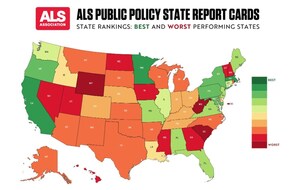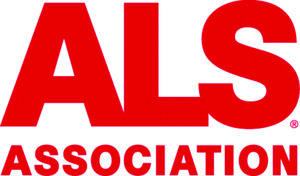
WASHINGTON, Sept. 21, 2021 /PRNewswire/ -- The ALS Association has created a new diagnostic guide, thinkALS, that will help neurologists more quickly diagnose ALS. Earlier diagnoses allow patients to participate in clinical trials and access treatments and benefits sooner, as well as receive care services support.
"Reducing time to diagnosis is a high priority for The ALS Association," said Dr. Jill Yersak, vice president of mission strategy at The ALS Association. "It is imperative that people are diagnosed earlier so we can help begin to reduce burdens and avoid additional unnecessary testing. We are excited to see this tool come to fruition and are grateful to the thinkALS development group and the Association's time to diagnosis working group members who all had an important part in helping develop it."
There is no one test or procedure to ultimately establish the diagnosis of ALS. In the United States, the diagnostic process of ruling out other diseases that mimic ALS continues can take more than a year from the initial onset of symptoms on average. Such a delay may result in people losing function without access to multidisciplinary care and treatments that can help them manage the course of their disease and even extend their life. Delays can also reduce a person's ability to participate in the much needed clinical trials and research that accelerate therapeutic discoveries.
ThinkALS provides general neurologists a comprehensive list of key clinical features of the disease that may lead them to suspect an ALS diagnosis much earlier in the process. It also provides information to find the nearest ALS multidisciplinary clinics based on a patient's zip code, along with guidance on how physicians can write referrals to speed up access to ALS treatments.
"There is incredible progress being made in clinical therapeutic development in ALS," said Dr. Suma Babu, assistant professor of neurology at Harvard Medical School and a leading member of the thinkALS development team and The ALS Association's Time to Diagnosis working group. "It has never been more critical to diagnose ALS quickly and refer patients to multidisciplinary ALS centers."
"The longer it takes for a patient to be diagnosed, the longer they are waiting to get access to treatments or therapies that may help them live longer and retain functional independence longer," Dr. Babu added.
The need for thinkALS was identified by an ALS Association Roundtable "Reducing Time to Diagnosis," a working group comprised of ALS clinicians and physician scientists, people with ALS, caregivers, pharma industry representatives, and Association leaders, which identified barriers to early ALS diagnosis and strategies for reducing the time to ALS diagnosis. Initial outreach and physician education will focus on general neurologists, who are a critical link in the physician diagnostic consultation chain and a frequent referral source for ALS clinics in the U.S. The Association's goal is to incrementally expand clinician awareness and education initiatives, and later to target other specialists and primary care physicians.
About The ALS Association
The ALS Association is the largest philanthropic funder of ALS research in the world. The Association funds global research collaborations, assists people with ALS and their families through its nationwide network of chapters and certified clinical care centers, and advocates for better public policies for people with ALS. The ALS Association builds hope and enhances quality of life while urgently searching for new treatments and a cure. For more information about The ALS Association, visit our website at www.als.org.
SOURCE The ALS Association







Share this article